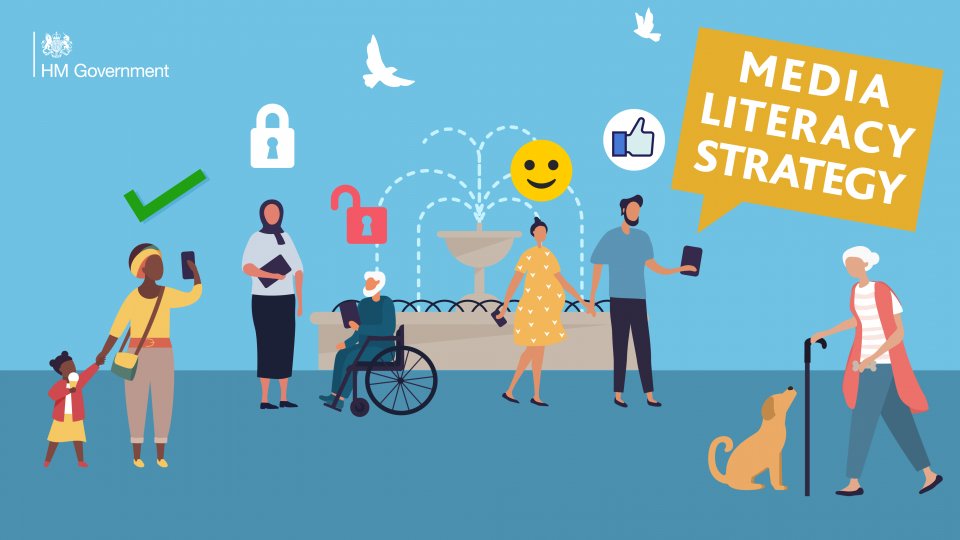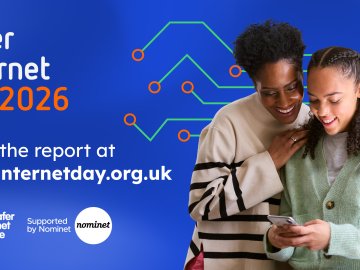Yesterday (14th July 2021) Caroline Dinenage, Minister for Digital and Culture launched a new Online Media Literacy Strategy to help combat misinformation online. The strategy has been brought forward to support teachers and other professionals working with children in their skills to help children and young people in their critical thinking development to spot misinformation online.
The topic of misleading content or ‘Fake News’ is a problem that many of us face on a day-to-day basis, not only affecting children and young people but adults as well. According to Ofcom, it was found that 40% of adults do not have the skills to critically assess online content. The topic is so relevant that it was our theme for Safer Internet Day 2021 and managed to be our biggest one yet!
Part of the strategy aims to offer training to those who work with children and young people with a focus towards those who have vulnerabilities. This training will look to develop critical analysis of online content so when individuals read content online, there is an understanding behind how content works and why critical thinking is important to determine what is trustworthy or not. The skills learned can then be passed on to those children and young people in their care. As well as this, working with social media influencers will also be explored to try and promote awareness of these skills
Digital Minister Caroline Dinenage said:
False or confused information spread online could threaten public safety and undermine our democracy. We are legislating to make tech platforms more accountable for this, but people still need the right skills to distinguish between fact and fiction online. Through the Media Literacy Strategy, we will channel the efforts of dedicated UK organisations and bring the fight to fake news by making the young, vulnerable and wider online community more resistant and resilient to it.
Part of the strategy includes a portal where all relevant resources and support lines are available to help individuals with developing their online skills. Some of the resources included are from the UK Safer Internet Centre and SWGfL:
- Project evolve: ProjectEVOLVE aims to “evolve” the online safety messages that children and young people are being taught into something more appropriate; more meaningful; that encourages reflection; that generates positive outcomes.
- ReportHarmfulContent: Report Harmful Content is the national reporting centre assisting everyone in reporting legal but harmful content online.
- Headstart Kernon Digital Resilience: Provide professionals and parents with supportive resources to help them make informed judgements on online harms and risks disclosed by young people. It provides a tool and a series of podcasts for professionals and parents to talk about online safeguarding issues and how to respond to them.
- Swiggle: Swiggle is a child-friendly search engine that uses the very latest search technologies to make your searches more useful. It not only gives you safer access to online content but encourages responsible behaviour too.
- 360safe: 360 degree safe helps schools review their online safety policy and practice. The review takes you through each aspect of online safety, helping you to collaborate, report, and progress.
- RevengePorn Helpline: The Revenge Porn Helpline provides support to people seeking support and advice for cases of intimate image abuse.
- Social Media Checklists: Downloadable booklets to guide you through your profile settings of the most popular social media and online platforms.
- Tagflag: Constantly monitor your online mentions and stay on top of your reputation.
- 360Early Years: 360 Early Years is a simple tool that allows Early Years and pre school settings to review and improve their online safety practice for the benefit of the setting itself and for the children, staff/volunteers and families.
David Wright (Director of UK Safer Internet Centre at SWGfL) said:
Misleading information online is a problem we find ourselves in no matter how old or how well we feel accustomed to the internet. With so many online platforms now hosting content, it falls on individuals to know what to trust. Raising awareness and building understanding of critical thinking is the first step to protect individuals and young people when navigating the online world. This strategy and the resources included are there to support those who work with children and help combat the issue of misinformation online. We hope this will be another step in the right direction to make online safety a number one priority in the UK.






